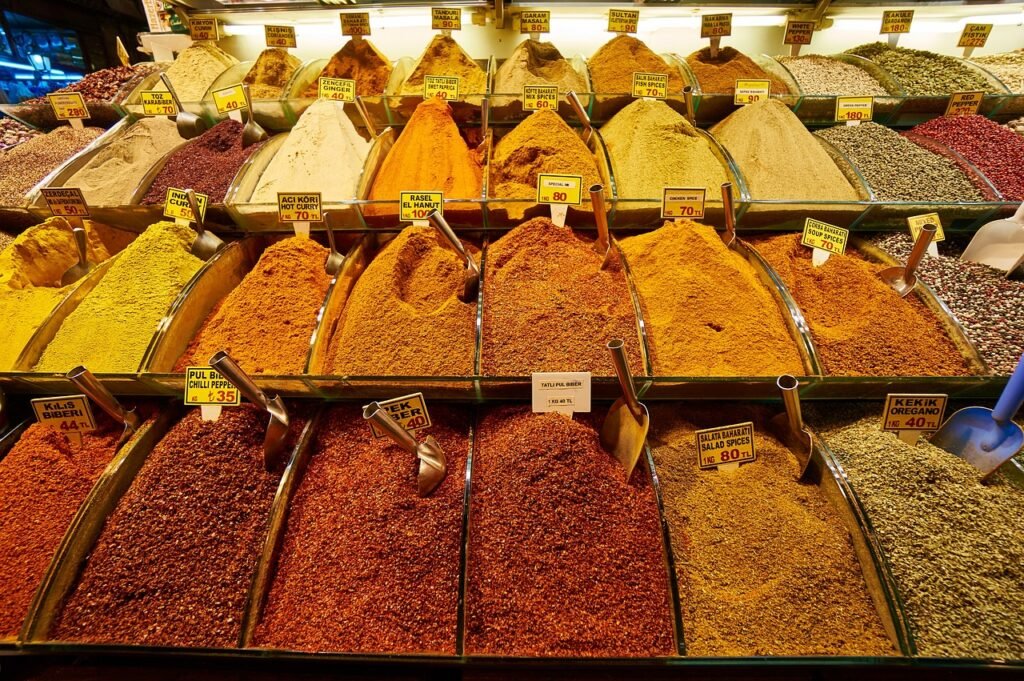Noble Herb: Remarkable Health Benefits

Introduction to Noble Herb
In the realm of natural remedies, Turmeric stands tall and distinguished, earning the nickname Noble Herb. This vibrant spice, known for its golden hue, is more than just a culinary delight; it’s a powerhouse of health benefits. This blog post delves into the fascinating world of Turmeric, exploring its rich history, exotic origins, traditional sourcing methods, and its multitude of health benefits.
Understanding Noble Herb
Turmeric, scientifically known as Curcuma longa, has a history as rich and colorful as its appearance. Originating from Southeast Asia, particularly in the Indian subcontinent, it has been a staple in traditional medicine, like Ayurveda, for thousands of years. This Noble Herb was not only valued for its healing properties but also held a significant place in cultural and spiritual practices.

The History and Origin of Turmeric
Turmeric, scientifically known as Curcuma longa, boasts a history as rich and colorful as its vibrant appearance. Originating from Southeast Asia, and flourishing particularly in the Indian subcontinent, this ‘Noble Herb’ has been an integral part of traditional medicine, such as Ayurveda, for thousands of years. Its journey from an ancient healing spice to a modern-day superfood is steeped in a rich tapestry of history and tradition.
In Ayurveda, Turmeric was not just a medicinal ingredient; it was revered as a spiritual and purifying agent. It was used in various rituals and ceremonies, symbolizing purity, fertility, and prosperity. Its bright yellow color, reminiscent of the sun, was believed to imbue its positive energy and healing properties into those who consumed it.
Beyond the borders of India, Turmeric’s fame spread along the spice routes to the Middle East, East Africa, and beyond. Each culture it touched adapted it into their healing practices and culinary arts, adding their unique spin to its use. In traditional Chinese medicine, Turmeric was valued for its qi-regulating and blood-moving properties, contributing to its wide-reaching acclaim.
The historical significance of Turmeric is further exemplified in ancient texts and artifacts. References to this ‘Noble Herb’ can be found in early Sanskrit writings, and traces of Turmeric were even discovered in the remains of pots in New Delhi, suggesting its usage as far back as 2500 BCE.
Today, the legacy of Turmeric continues to grow, as modern science begins to uncover and substantiate the healing properties that ancient civilizations have known and utilized for millennia. This journey from a humble root to a globally recognized super herb encapsulates the essence of Turmeric as the ‘Noble Herb,’ a symbol of nature’s unyielding power to heal and nurture.

How Turmeric is Sourced
Traditionally, Turmeric is grown in regions with a warm and humid climate, ideal for its cultivation. The process begins with planting rhizomes, which are the root parts of the plant. After about eight to ten months, when the leaves and stem start to dry and turn brown, it’s an indication that the Turmeric roots are ready to be harvested. These roots are then boiled, dried, and ground into the vibrant yellow powder that we are familiar with. To learn more about other herbs Click Here
Health Benefits of the Noble Herb
- Anti-inflammatory Properties: Curcumin, the active compound in Turmeric, is renowned for its anti-inflammatory effects, beneficial in managing conditions like arthritis.
- Antioxidant Power: Turmeric acts as a potent antioxidant, fighting against free radicals and promoting overall health.
- Boosts Brain Health: Curcumin has the ability to cross the blood-brain barrier, potentially aiding in the prevention of Alzheimer’s disease and improving cognitive function.
- Heart Health: Regular consumption can improve heart health by reducing cholesterol levels and preventing blood clots.
- Aids Digestion: It stimulates the gallbladder, aiding in digestion and reducing symptoms of bloating and gas.
- Skin Health: Turmeric’s anti-inflammatory and antimicrobial properties can improve skin conditions like acne and eczema.
- Cancer Prevention: Studies suggest that curcumin may have cancer-fighting properties and can potentially inhibit the growth of tumor cells.
- Anti-Depressant: There is evidence to suggest that Turmeric can act as a mood enhancer and help in treating depression.
- Detoxification: Turmeric supports liver function and detoxification pathways, helping in the cleansing of the body.
- Pain Relief: Its natural anti-inflammatory properties make it effective in relieving pain, especially joint pain and menstrual pain.
Each of these benefits highlights the diverse and potent healing capabilities of Turmeric, justifying its title as the Noble Herb.
Safety and Considerations
While Noble Herb is natural, it’s important to use it wisely. Always consult with a healthcare professional before trying new treatments, especially if you have existing health conditions or are taking medication. It’s crucial to be aware of possible allergic reactions or interactions with other medications. Remember, what works for one person may not work for another, and self-diagnosis can sometimes lead to complications. Educating yourself about each plant’s properties and potential side effects is key to safely incorporating garden remedies into your health regimen.

Noble Herb Wrap Up
The Noble Herb, Turmeric, transcends its identity as a mere culinary spice, revealing itself as a holistic remedy that has weathered the sands of time. Its esteemed place in traditional medicine across various cultures underscores a legacy steeped in healing and wellness. The extensive use of Turmeric, especially noted in ancient practices like Ayurveda and Traditional Chinese Medicine, highlights its versatility and enduring relevance in natural health care.
Turmeric’s multitude of health benefits, ranging from anti-inflammatory and antioxidant properties to brain and heart health enhancement, make it an indispensable addition to any diet. It’s not just about adding flavor to dishes; incorporating Turmeric means inviting a host of therapeutic benefits that can positively impact overall health. Its active compound, curcumin, is a testament to nature’s prowess in providing potent remedies.
As we delve deeper into understanding Turmeric, we find a herb that is much more than its parts. It’s a symbol of nature’s unerring ability to nurture and heal. The recognition of Turmeric as the ‘Noble Herb’ is a nod to its multifaceted uses, its historical significance, and its powerful healing properties. This herb doesn’t just add color and flavor to our meals; it infuses our lives with its medicinal qualities, making it a truly deserving bearer of its title




